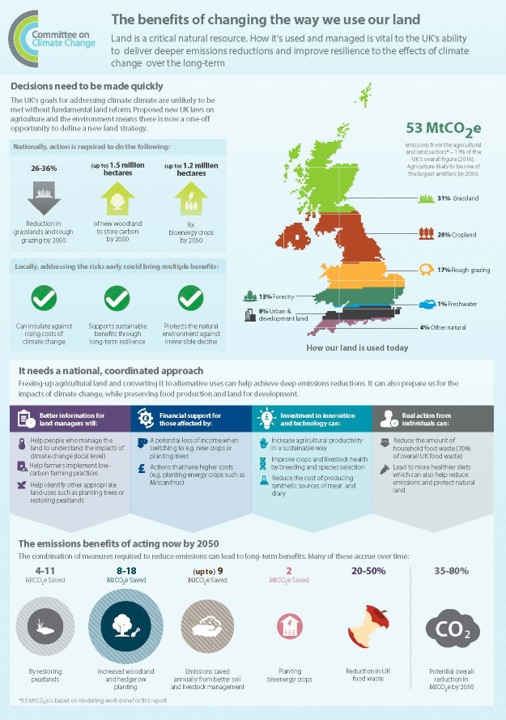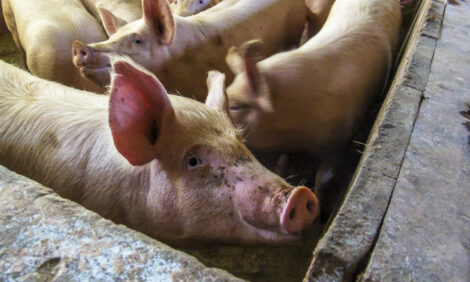



How will UK agriculture respond to the new climate change report?
Today (15 November) the Climate Change Committee (CCC) has released its report which assesses the role of land use change in meeting climate change mitigation and adaptation objectivesThe report, Land use: Reducing emissions and preparing for climate change, was prepared in response to growing concerns over rural land use and the large volumes of greenhouse gases emitted from agriculture.
The Climate Change Committee states:
“The Government needs to address climate change, which threatens the land’s ability to provide critical services including clean water, healthy soils and timber, and ensure sufficient food production for an increasing population and space for new homes.”
“Overall, the report finds that fundamental reform is required to ensure land becomes a more effective carbon store, whilst early action is needed to maximise the benefits from changing how land is used.”
The report’s key recommendations are:
- New land use policy should promote transformational land uses and reward landowners for public goods that deliver climate mitigation and adaptation objectives. New policies should also reflect better the value of the goods and services that land provides.
- Support should be provided to help land managers transition to alternative land uses.
The key findings from the report are (see infographic below):
- Climate change impacts are already altering the land’s use, while the services provided by the natural environment are being degraded.
- Land is a critical natural resource, but past policies governing the use of UK land have been fragmented and incomplete.
- New land-use policy must promote radically different uses of UK land.
- Alternative uses of land can be economic for farmers and land managers, but Government must provide help for them to transition.
Responses to the publication of the report have been mixed. Minnette Batters, NFU President, spoke on the matter today:
“The NFU has been clear with its position on British farming’s role in tackling climate change; reducing livestock numbers in the UK is not a part of that policy. We are disappointed to see the Committee on Climate Change include that recommendation in its report. The report simply does not recognise the environmental benefits grass-fed beef and sheep production brings to the UK.
“It would be a fundamental mistake to design a farming system solely around an approach that mitigates greenhouse gases without any regard to the wider impact of such a policy for our environment and our food supply. It risks producing a one-eyed policy.”










